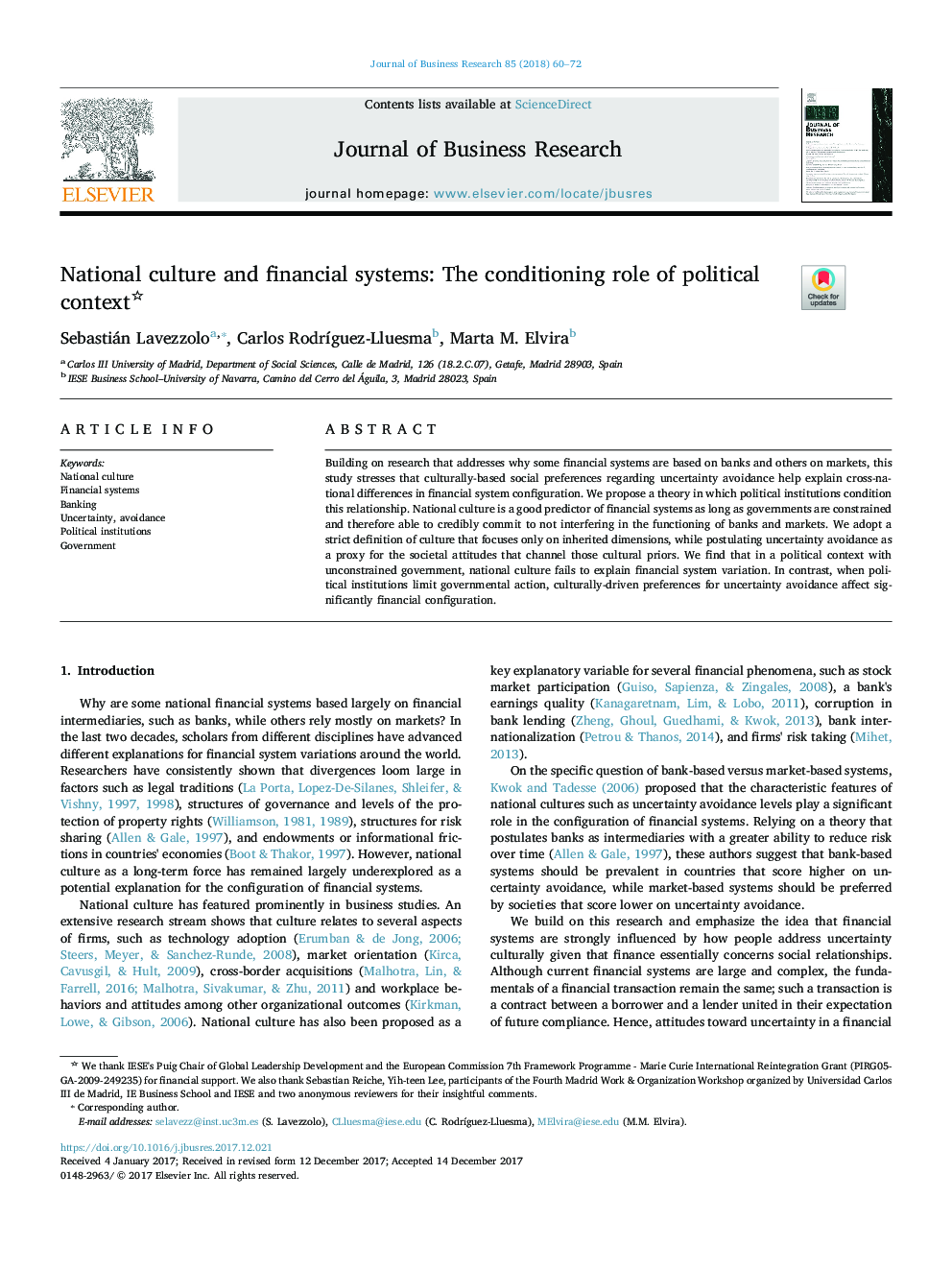| Article ID | Journal | Published Year | Pages | File Type |
|---|---|---|---|---|
| 7425194 | Journal of Business Research | 2018 | 13 Pages |
Abstract
Building on research that addresses why some financial systems are based on banks and others on markets, this study stresses that culturally-based social preferences regarding uncertainty avoidance help explain cross-national differences in financial system configuration. We propose a theory in which political institutions condition this relationship. National culture is a good predictor of financial systems as long as governments are constrained and therefore able to credibly commit to not interfering in the functioning of banks and markets. We adopt a strict definition of culture that focuses only on inherited dimensions, while postulating uncertainty avoidance as a proxy for the societal attitudes that channel those cultural priors. We find that in a political context with unconstrained government, national culture fails to explain financial system variation. In contrast, when political institutions limit governmental action, culturally-driven preferences for uncertainty avoidance affect significantly financial configuration.
Related Topics
Social Sciences and Humanities
Business, Management and Accounting
Business and International Management
Authors
Sebastián Lavezzolo, Carlos RodrÃguez-Lluesma, Marta M. Elvira,
